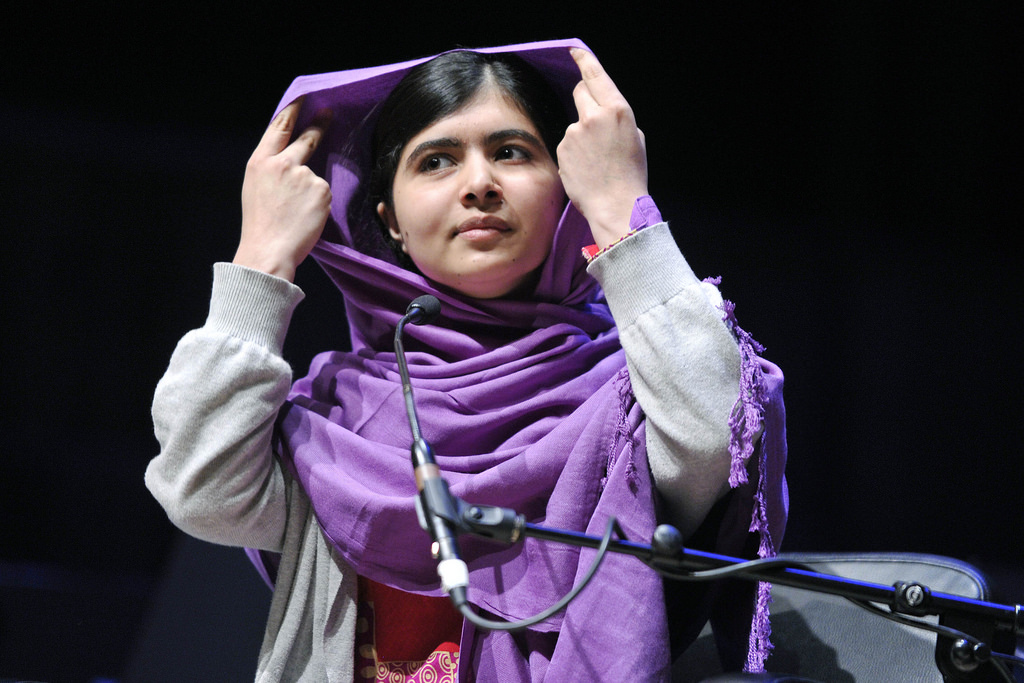Pakistani education and human rights activist Malala Yousafzai took to Twitter yesterday to call for an end to the violence committed by Myanmar security forces against Rohingya Muslims. She also criticized fellow Nobel laureate Aung San Suu Kyi for not speaking out against their “tragic and shameful treatment.”
Nearly 90,000 Rohingya have flooded into Bangladesh in the past 10 days following an uptick in fighting between militants and Myanmar’s military in strife-torn western Rakhine State.
The impoverished region bordering Bangladesh has been a crucible of communal tensions between Muslims and Buddhists for years, with the Rohingya forced to live under apartheid-like restrictions on movement and citizenship.
The recent violence, which kicked off last October when a small Rohingya militant group ambushed border posts, is the worst Rakhine has witnessed in years with the UN saying Myanmar’s army may have committed ethnic cleansing in its response.
De facto leader Suu Kyi, a former political prisoner of Myanmar’s junta, has come under increasing fire over her perceived unwillingness to speak out against the treatment of the Rohingya or chastise the military.
She has made no public comment since the latest fighting broke out.
“Every time I see the news, my heart breaks at the suffering of the Rohingya Muslims in Myanmar,” Yousafzai wrote.
“Over the last several years I have repeatedly condemned this tragic and shameful treatment. I am still waiting for my fellow Nobel laureate Aung San Suu Kyi to do the same,” she added.
Yousafzai also demanded that citizenship be granted to Rohingyas in Myanmar and that other countries, including her native Pakistan, offer food, shelter, and access to education to Rohingyas fleeing violence.
Yousafzai gained international recognition since she began working as an advocate for women’s education at the age of 11 while living in a part of Pakistan that was then controlled by the Taliban. She was injured in an assassination attempt by a Taliban gunman at the age of 14 in 2012.
In 2014, Yousafzai was awarded the 2014 Nobel Peace Prize for her struggle against the suppression of children and young people and for the right of all children to education. At age 17, she was the prize’s youngest recipient ever.
Last month, she began studying for a bachelor’s degree in Philosophy, Politics and Economics at the University of Oxford – the same degree Aung San Suu Kyi earned in 1967.
My statement on the #Rohingya crisis in Myanmar: pic.twitter.com/1Pj5U3VdDK
— Malala (@Malala) September 3, 2017
Defenders of Suu Kyi say she is severely limited in her ability to control Myanmar’s notoriously abusive military.
While her party won a landslide election in 2015, under Myanmar’s junta era constitution the army is effectively independent of any civilian oversight.
The Rohingya are also widely loathed by a huge section of Myanmar’s population, dismissed as Bangladeshi interlopers despite many tracing their lineage back generations.
That makes supporting them hugely unpopular.
But detractors say Suu Kyi is one of the few people in Myanmar with the mass appeal and moral authority to swim against the tide on the issue.
Additional reporting by AFP.





Reader Interactions